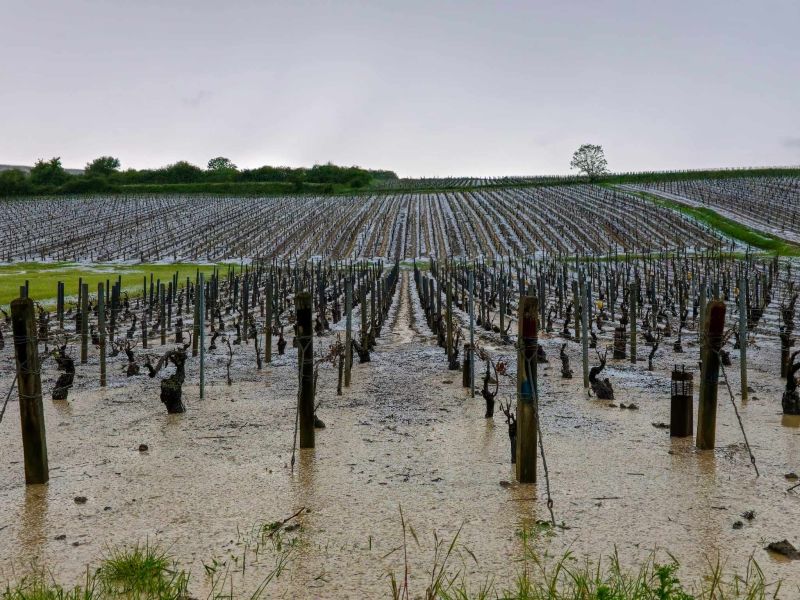A violent hailstorm wreaked havoc on vineyards in Chablis in the famous French wine region of Burgundy Wednesday evening, delivering another weather blow to already hard-hit local Chardonnay winemakers.
Huge hailstones, ranging from the size of a ping pong ball to the size of a lime, rained down on north Burgundy, with Chablis particularly badly affected, according to French weather agency Météo-France.
The precipitation was part of an violent and intense storm known as a supercell storm, Météo-France said.
“We’ve never seen anything like this, it’s dramatic,” Julie Fèvre, a winemaker, told BFM.
“Everything is partially destroyed,” Paul-Étienne Defaix, another winemaker said.
Just last week, grapevines in Chablis froze during a sharp drop in temperatures, alarming winegrowers.
Government bodies are looking for ways to help winemakers following the destruction, the French agriculture minister Marc Fesneau posted on X.
Chablis is famous for dry white wine made from the renowned Chardonnay grape, which is at the heart of the local economy. Some 38 million bottles of Chablis Chardonnay wine are sold every year, generating an estimated $340 million turnover, according to the Burgundy wine association.
Around 67% of Chablis wine is exported to foreign markets, the association said.
“If winemakers don’t work well and make a nice harvest, it disturbs everyone: craftspeople, business owners, the whole economic activity way beyond Chablis,” the Chablis mayor told BFM.
Extreme weather, including drought and heat as well as frost and hailstorms, is affecting the wine industry globally.
The world’s wine harvest in 2023 was the lowest in 61 years because of “extreme climatic conditions” as well as widespread fungal diseases, an April report from the International Organisation of Vine and Wine revealed.
Some winemakers in France are trying to remain hopeful.
“We have no choice. Loss of morale won’t advance anything,” Louis Poitout, a winemaker in Chablis told BFM.
“We winemakers and farmers are generally quite combative. We have to try and find solutions, and we’ll find them,” he said.

